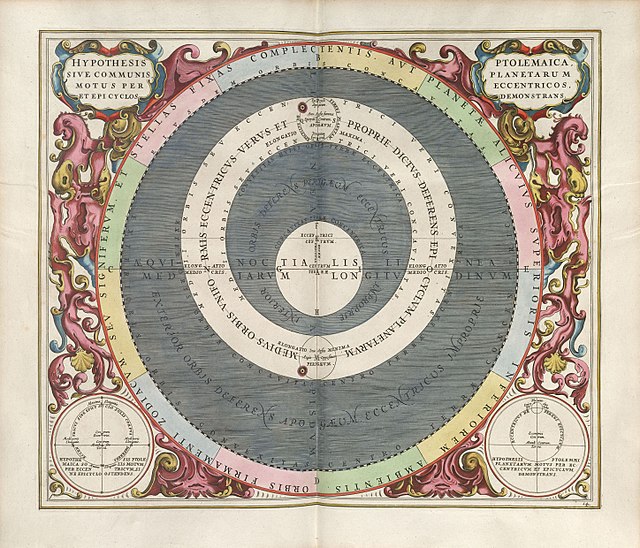A hypothesis is a proposed explanation for a phenomenon. For a hypothesis to be a scientific hypothesis, the scientific method requires that one can test it. Scientists generally base scientific hypotheses on previous observations that cannot satisfactorily be explained with the available scientific theories. Even though the words "hypothesis" and "theory" are often used interchangeably, a scientific hypothesis is not the same as a scientific theory. A working hypothesis is a provisionally accepted hypothesis proposed for further research in a process beginning with an educated guess or thought.
The hypothesis of Andreas Cellarius, showing the planetary motions in eccentric and epicyclical orbits.
A phenomenon , sometimes spelled phaenomenon, is an observable event. The term came into its modern philosophical usage through Immanuel Kant, who contrasted it with the noumenon, which cannot be directly observed. Kant was heavily influenced by Gottfried Wilhelm Leibniz in this part of his philosophy, in which phenomenon and noumenon serve as interrelated technical terms. Far predating this, the ancient Greek Pyrrhonist philosopher Sextus Empiricus also used phenomenon and noumenon as interrelated technical terms.
The combustion of a match is an observable occurrence, or event, and therefore a phenomenon.
A comparison between a candle flame on Earth (left) and in a microgravity environment, such as that found on the International Space Station (right). The same burning phenomenon is observed, but different flame shape and colouring phenomena are also observed.
Cloud chamber phenomena. Scientists use phenomena to refine some hypotheses and sometimes to disprove a theory. See also animated version.




